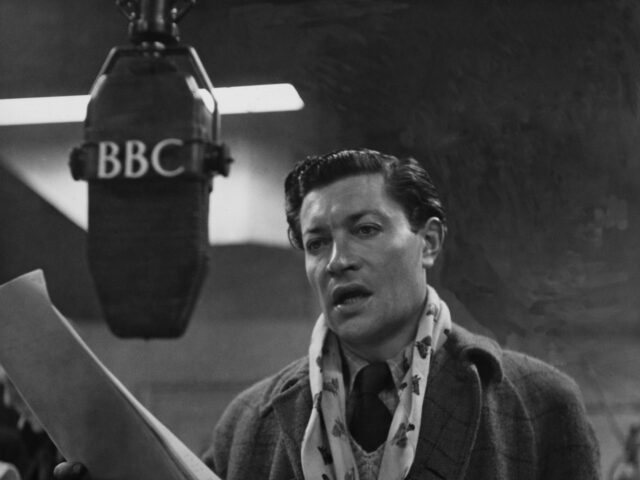Britain’s national broadcaster has reportedly been crafting secret scripts to be read out to the public in the event that the energy crisis results in blackouts during the winter months.
The BBC, which as a publicly-funded broadcaster has a role in disseminating messages to the populace during times of national crisis, has allegedly already begun preparing emergency broadcasts in order to reassure the people of Britain if the feared prospect of winter blackouts become a reality and cause disruptions in banking systems, internet access, mobile phone networks, and traffic lights.
One such script, seen by The Guardian newspaper, stated: “The government has said it’s hoped power will be restored in the next 36 to 48 hours. Different parts of Britain will start to receive intermittent supplies before then.”
Another, written in a news bulletin style said: “The emergency services are under extreme pressure. People are being advised not to contact them unless absolutely necessary.”
The emergency warnings also spoke of a blackout that could last up to two days, under which scenario hospitals and police services would be put under “extreme pressure”.
In the event of a blackout, the public would be told to use their car radios or battery-powered radios to tune into emergency broadcasts of BBC Radio 2 and Radio 4.
The scripts were reportedly drafted by journalists at the BBC as a part of emergency planning protocols for potential crises. It is also believed that messages would differ for the separate regions and nations of the United Kingdom, as Northern Ireland in particular is on the same national grid as the Republic of Ireland and would be unaffected by blackouts on the isle of Great Britain, but would be impacted by blackouts on the island of Ireland.
It is currently unclear if the government, which works with the BBC to develop emergency contingency plans, had any role in developing the scripts for blackouts.
“The government is confident that this is not a scenario we will face this winter,” a government spokesman said.
There is a “significant risk” of gas shortages that would see gas-powered power plants go offline this winter, the UK energy regulator warned. https://t.co/n9emzn09VI
— Breitbart News (@BreitbartNews) October 4, 2022
While the government has attempted to downplay the possibility of blackouts, the head of the National Grid, John Pettigrew warned on Monday that there is a possibility of rolling blackouts throughout the country between 4pm and 7pm during “really, really cold” days in the months of January and February.
The prospect of blackouts in Britain comes despite the fact that the UK is not reliant on Russian gas imports like much of continental Europe. However, due to over a decade of failure from the ruling Conservative Party to secure energy independence for the nation by tapping its own gas reserves or pursuing nuclear power, the nation still imports a large amount of energy during the winter months.
Highlighting the issues with the pursuit of so-called green energy, Pettigrew noted that during the coldest months, wind speeds are typically too slow to power the scores of wind turbines the UK government has built instead of making the country independent in energy. During such periods of cold weather and slow wind, the UK has been forced to look towards European nations such as Belgium, France, and the Netherlands to supply electricity through underwater cables.
While Prime Minister Liz Truss came to an agreement with the three nations earlier this month at the meeting of French President Emmanuel Macron’s European Political Community in Prague to keep the electricity flowing during the winter in exchange for opening up British territory in the North Sea to European wind farm projects, there is no guarantee that the commitments will be met should Europe face its own energy crisis.
The National Grid chief said on Monday that the winter months could also see households and businesses across Britain being paid to limit their energy usage. Pettigrew said that such a scheme would present a “glimpse of what the future is actually going to be like,” as similar proposals have already been brought up as a possible means of achieving the green agenda goal of Net-Zero carbon emissions by the year 2050.
Exclusive – China and Russia Laughing at Boris Johnson’s ‘Net-Stupid’ Green Agenda: Richard Tice https://t.co/NiDLVOqynk
— Breitbart London (@BreitbartLondon) November 14, 2021
Follow Kurt Zindulka on Twitter here @KurtZindulka

COMMENTS
Please let us know if you're having issues with commenting.